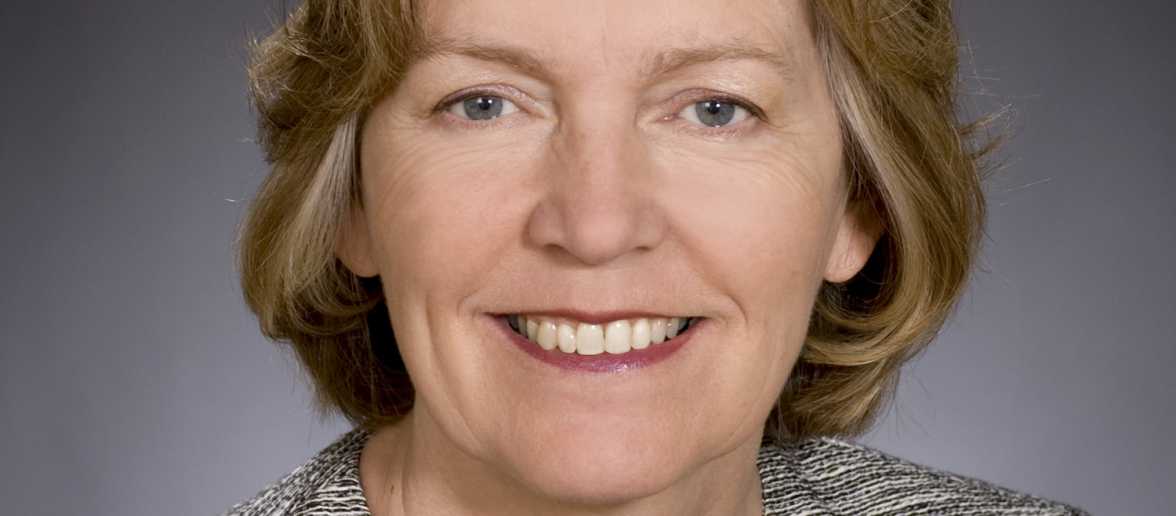
6 Questions for Elizabeth Beale: on energy, innovation and ecofiscal opportunities in Atlantic Canada
“If you put two economists in a room, you get two opinions, unless one of them is Lord Keynes, in which case you get three.” So said Winston Churchill. So what happens when you put 12 leading economists in a room and ask them to focus on one of the biggest challenges of our time: growing economic and environmental prosperity in Canada? You get Canada’s Ecofiscal Commission. This Commissioner blog series gives you a glimpse into the diverse personalities and perspectives behind our work — and what it takes to wrestle through the big issues together.
- In your opinion, why does Canada need an Ecofiscal Commission?
I think that we have struggled with the issues around the economy and the environment for a long time. Canada has a lot at stake in this. We tend to think a lot about our role as energy producers, but it’s also our role as energy users that matters. We need an efficient energy system, and we all need to make sure that develops without unduly harming the environment.
- What do you hope to achieve through the Commission?
To put forward credible analysis and research that can be used by the political elite. It’s a research and a public policy agenda, but it’s clearly intended to move the yardstick in terms of policy formation.
- What do you see as the biggest opportunity to apply ecofiscal policies within Atlantic Canada?
I think there’s a lot at stake on this agenda for Atlantic Canada, and certainly the issues around climate change have a very material impact on our economic decisions. We are significant energy producers — we now have a significant share of Canada’s conventional oil production coming out of offshore projects on the east coast, and we’re only at the tip of the start of that. As energy producers, we’ve got a lot at stake given our vulnerable coastline and our marine sector. But we also have a significant amount at stake as energy users. Atlantic Canada is not fully integrated into North American energy markets, and energy users here do not have access to a local gas supply the same way that consumers in most of North America do. That makes us more dependent on oil, either to generate high-priced electricity or for domestic heating.
- What kind of role do you think ecofiscal policies could play in boosting innovation and productivity?
There are all sorts of areas at the moment that are ripe for the exploration of new technologies in terms of carbon sequestration and storage. We also have a significant interest in Atlantic Canada in renewable energy development, in part driven by policies at the provincial level, including here in Nova Scotia around tidal power. A strong ecofiscal framework will ensure the most efficient mix of policies to support renewable energy and could help to bring new technologies such as tidal power through to commercial application.
- How do you go about ensuring that ecofiscal policies don’t put an unfair burden on low-income families?
We already have mechanisms to do that, so absolutely, this can be achieved. Ensuring progressivity in personal income tax and offering credits to low-income families to balance out the regressivity of consumption tax has been a feature of Canadian tax policy for a long time. There’s no reason why we can’t look at mechanisms that would ensure this path continues under an ecofiscal regime.
- The Commission’s advisory board attracted people from all ends of the political spectrum. When it comes to the commissioners themselves, however, how diverse a group are you?
We are highly diverse. Some commissioners are leading researchers in their respective fields. We also have commissioners who’ve had significant experience in moving agendas through government and through the federal government in particular. And then we have others like me who’ve played more of a role in distributing discussions on public policy options to a much broader audience.
About the Author
Elizabeth Beale is President and CEO at the Atlantic Provinces Economic Council, as well as a Commissioner of Canada’s Ecofiscal Commission.




Comments are closed.